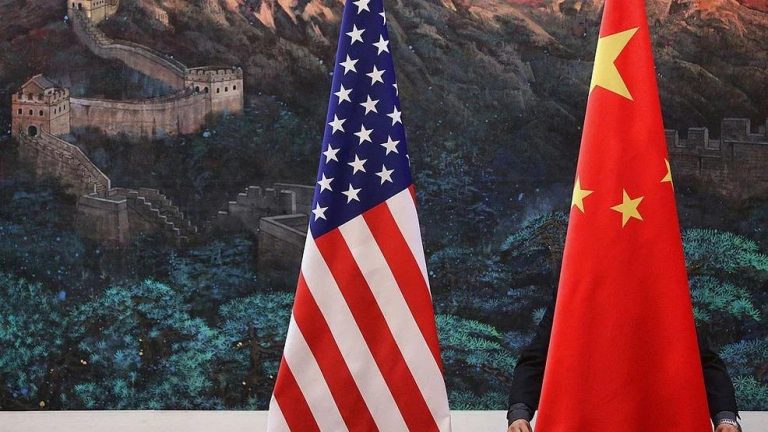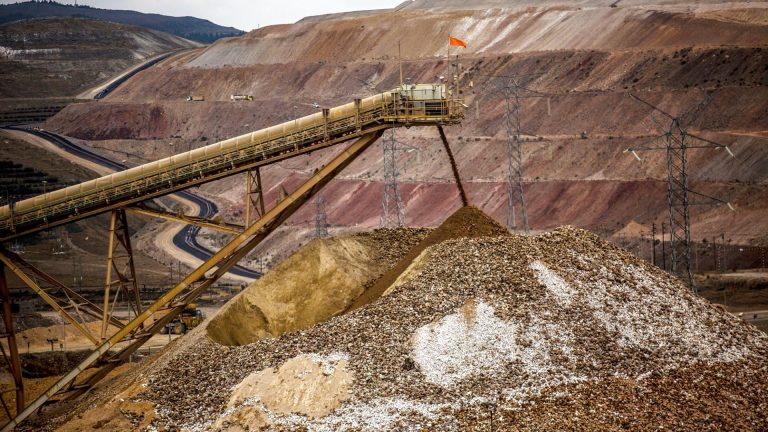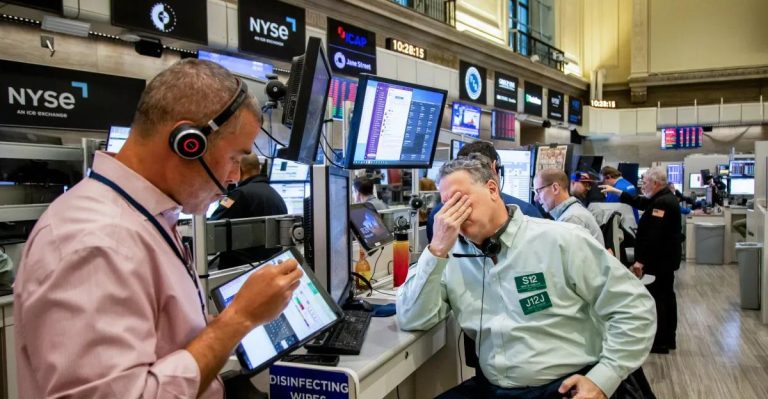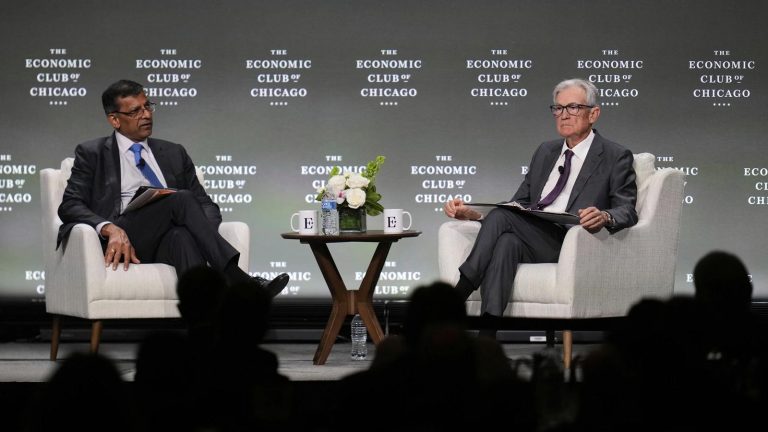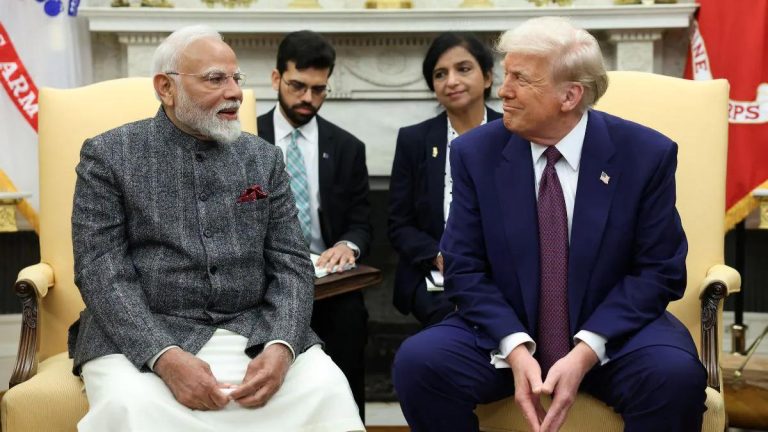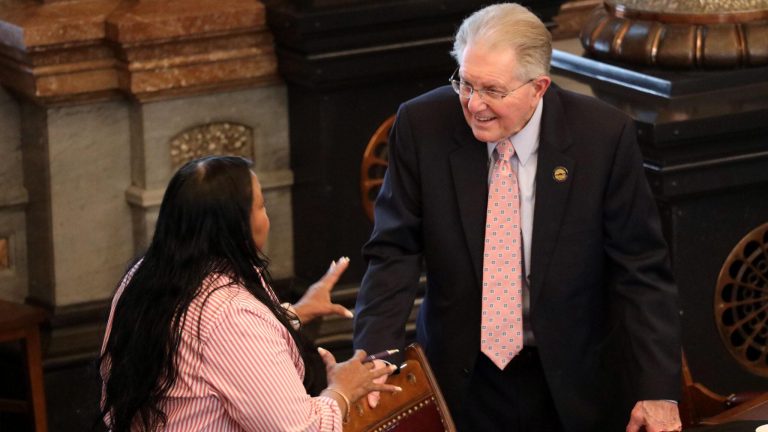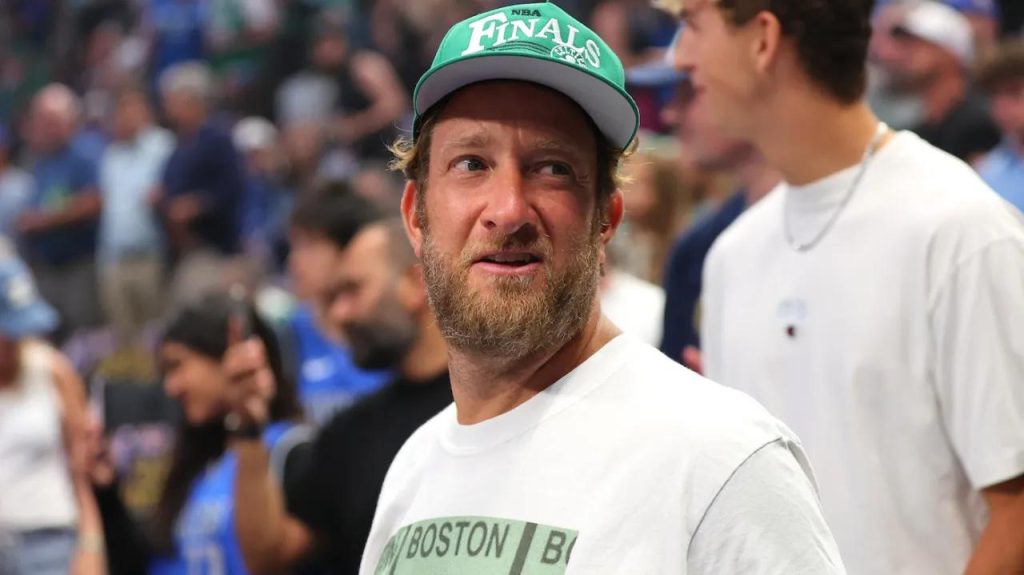
Trump’s Tariff Shockwave: Portnoy’s $20M Market Meltdown | Image Source: thehill.com
NEW YORK, 7 April 2025 – While Wall Street took its steepest nose in almost half a decade, a surprising voice emerged from the remains to challenge the same policies that triggered the turbulence – founder of Barstool Sports and Trump’s long-standing supporter Dave Portnoy. Over the past week, Portnoy, known for his brazen comments and mergers on the market during the “Davestram” Davey Day Trader, has moved from a vocal ally to a frustrated critic of President Donald Trump, whose aggressive new tariffs have triggered a fall in the market and have sent undulating effects through industries, including media and technology. Portnoy’s reaction encapsulates what many investors are currently feeling: astonished, disillusioned and much poorer.
“Orange Monday”, as Portnoy called it, is currently being discussed with terms such as “Black Monday” and “Black Tuesday” – days synonymous with financial chaos. But unlike previous crises, rooted in external shocks such as pandemics or terrorist attacks, this situation, according to Portnoy, is different. “It’s a decision a guy made the whole stock market crash,” he said during his Monday broadcast. This “one type” is Trump, whose tariffs have caused new economic uncertainty and a fall of about 10% in the Dow Jones for only three days of negotiations. According to Yahoo! Finance, the Dow dropped 350 points in one session, eliminating the worst three-day decline since March 2020.
What caused the merger of the securities market?
At the heart of the financial storm is President Trump’s latest set of tariffs for more than a dozen major US trading partners. Described by Trump as a movement to end the “exploitation” of American workers, tariffs were applied unilaterally and without Congress’ approval. From Wednesday, these rates – up to 25% – indicate billions of dollars in imports. The President’s objective appears to be to strengthen domestic production, but the immediate effect has been to increase production costs, scare investors and adjust stock prices.
According to the Associated Press, Trump defended tariffs by insisting that they strengthen the US economy over time. “I don’t want to fall anything,” he said in response to plumbing rates. But economists largely disagree. They note that higher entry costs will be translated into priestly goods, a possible slowdown in consumer spending and wider economic effects. As the analysts interviewed by The Hill say, the last-minute pricing blitz, combined with Trump’s start at the crisis-ridden golf weekend, has only increased public frustration and investor anxiety.
How did Dave Portnoy react?
Portnoy’s reaction was not just financial – it was deeply personal. “As in my mind, Donald Trump cost me $20 million with what he did,” he said, stressing the extent of his portfolio losses in shares and cryptomonedas. What strangled the Internet magnate even more was Trump’s behavior over the weekend. “I didn’t like to see [Trump] playing his field championship on the golf course,” said Portnoy. ”The stock market is overwhelming. I lost 20% of my net worth. And you’re on the golf course.”
Criticism marks a rare public rupture between the two men. Portnoy, who voted for Trump and supported many of his policies, first urged patience with tariffs. But after seeing their investments interfered, patience gave way to palpable anger. In his current, he remembers when reality hit, “I’m stuck in a bullet in the sweating bed. It’s not a natural disaster. It’s made by man.”
That line — ‘man-made’ — is now reverberating across social media and finance circles, a stark commentary on the power a single policy shift can wield over global markets.
Why could the media industry be next?
Although tariffs traditionally affect manufacturing and commercial industries, Portnoy has raised an ignored concern: the media. Monday, he explained how Barstool Sports – like many media companies – depends on advertising revenues. “Our advertisers do business abroad and sell products. If these products become more expensive due to prices, they sell less. What is the first thing companies cut?” Suddenly, we won’t have that much money. All of a sudden, I have to fire Nate and fire people. “
This possible domino effect clearly reminds us that customs duties, even if they are intended for commercial policy, can calmly destabilise the foundations of industries that depend on the discretionary spending of companies. Advertising is often the first budget line cut during economic turbulence and represents an existential threat to online content creators, publishers and digital platforms.
Is this the beginning of a broader economic crisis?
Comparisons with past accidents are not only rhetorical. According to historical data cited by the Federal Reserve, the “black Monday” in 1987 saw the Dow Jones fall by almost 23% in one day. Similarly, the impact of VOCID in March 2020 has led to global markets. While these were triggered by external shocks, Trump’s tariffs are considered self-inflicted injuries. That is why Portnoy label “Orange Monday”, indicating a single cause of political root.
According to The Hill’s analysis, the economy as a whole could face prolonged interruptions if tariffs remained in place. Higher prices, lower business incomes and lower consumer confidence could pave the way for recession. For the moment, Tuesday, he offered a brief relief: the Slamp; P 500 increased by 3.8%, Nasdaq gained 4.2%, and Dow rebounded almost 3.8%. But most analysts see this as a temporary rebound, not a trend investment.
Can Portnoy’s public influence?
Portnoy’s criticism is gaining weight not only for its media platform, but also for its reach among younger and politically agnostic audiences. Your transition from Trump to the critical facilitator offers a goal in the speed at which feeling can change when financial bets are personal. On Friday, Portnoy always defended Trump by saying, “I think they’re smarter than me when it comes to these fares… I’m going to ride with him for a few days. “
Just 72 hours later, that loyalty was replaced with anger — and a very public rebuke.
At a time when influences can shape political discourse as much as the traditional media, Portnoy’s evolution could harm followers from rethinking blind political loyalty. Its crude and relatable character takes into account how policies affect daily investors can be more persuasive than any cable or op-ed information board. And that only makes your voice in this exceptionally influential debate.
What’s next for the markets and the White House?
Much depends on Trump’s decision to bend or reverse course. Historically, tariffs have rarely resulted in long-term gains unless accompanied by strategic diplomacy or national reinvestment. So far, Trump has shown little sign of regression, stressing that tariffs are a necessary “remission” of the world trade order. It remains to be seen whether voters and markets agree.
Meanwhile, Portnoy is tired of its losses and sees its future in an increasingly volatile economy. Despite the carnage, he maintains that he remains in the game, only with more scepticism. “I still believe in the long run, but for God’s sake, this one hurts.”
His story is likely mirrored by millions of investors, employees, and small business owners now caught in the crossfire of a trade war few expected to arrive so suddenly — or with such ferocity.
In the end, Portnoy’s “orange Monday” can become more than a meme or viral phrase. It could mark the beginning of a deeper balance between the costs of unilateral policy making and those who really pay the price when political bets go side by side.
Take away: The current financial storm, caused by the sudden imposition of tariffs by President Trump, feels far beyond Wall Street. For investors like Dave Portnoy and media companies like Barstool Sports, losses are not just monetary, they are an acute reminder of the unpredictable consequences of politically motivated economic policy. As tariffs progress and uncertainties increase, the next few weeks will be crucial to determining whether it was just a momentary shock or the beginning of a more worrying event.
